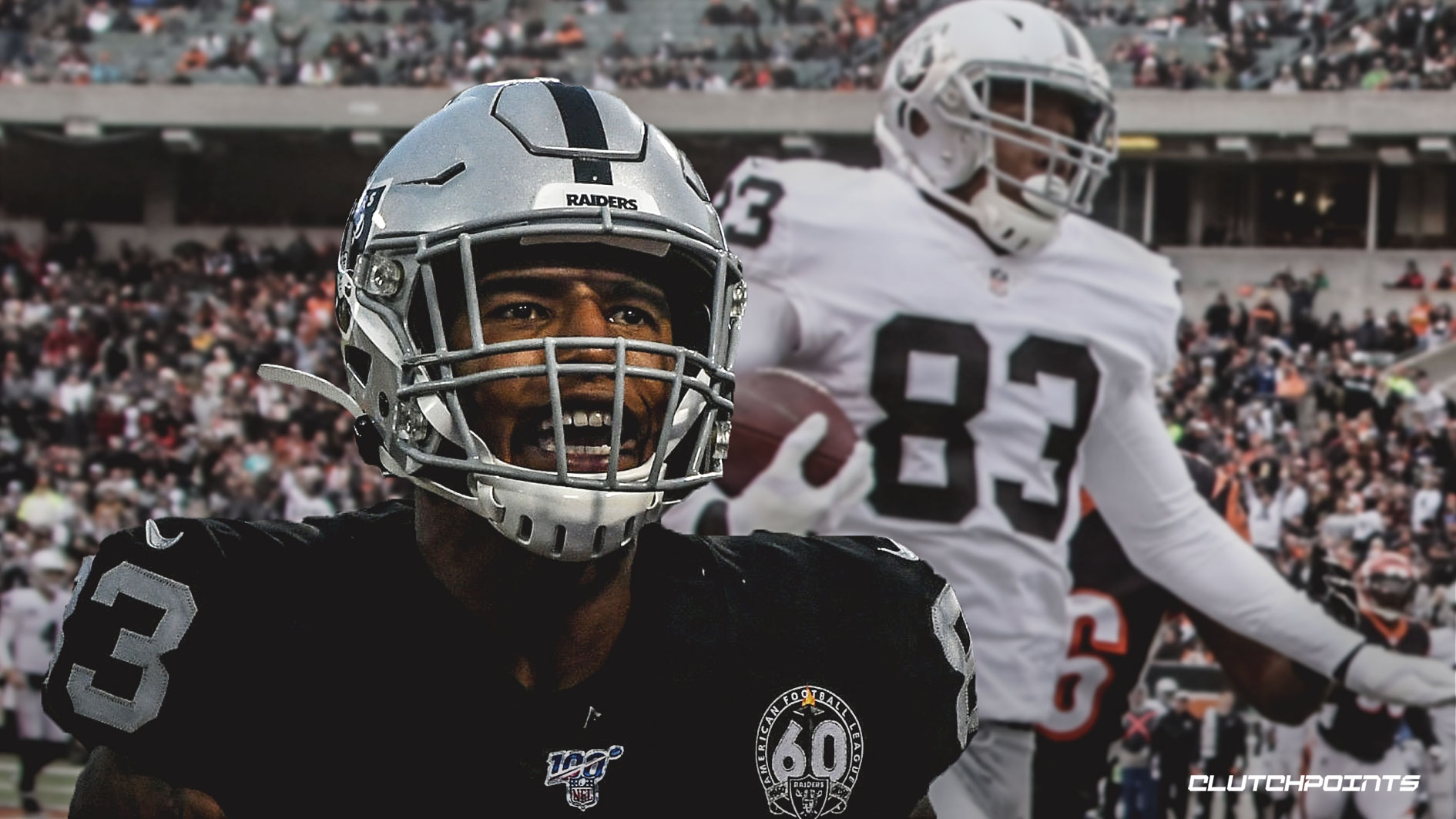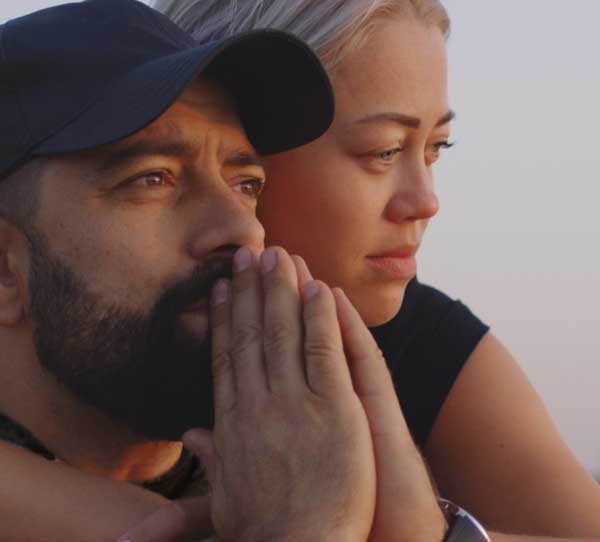
NFL and Drug Addiction: Darren Waller
If you are an avid football fan or fantasy football guru, the name Darren Waller might ring a bell. At a relatively thin tight end position, the Oakland Raider has nearly eclipsed the 500 receiving yard mark at the midway point of the season. Head Coach John Gruden has often referred to Waller as “the life blood” of the Raiders’ offensive attack. Waller’s stellar on-field performance even earned him a three-year contract extension which will pay him around $9 million over the next few seasons. In short, Waller is a beast on the field. But how much do you know about Darren off the field? In another story of hope, check out how Darren has transformed into a guiding light for others in the chaotic history of the NFL and drug addiction.
First, The Facts on the NFL and Drug Addiction
 Throughout the course of a sixteen-week season, players in the NFL will inevitably experience their fair share of bumps and bruises. I mean, imagine being hit by a 240-pound linebacker at full speed and then dog-piled on by several 300-pound defensive linemen. But in a league where not all contract money is guaranteed, organizations expect players to remain on the field and perform at a high level, regardless of the pain pulsing throughout their bodies. If only a way existed to numb the pain each week… cue opioids and prescription painkillers.
Throughout the course of a sixteen-week season, players in the NFL will inevitably experience their fair share of bumps and bruises. I mean, imagine being hit by a 240-pound linebacker at full speed and then dog-piled on by several 300-pound defensive linemen. But in a league where not all contract money is guaranteed, organizations expect players to remain on the field and perform at a high level, regardless of the pain pulsing throughout their bodies. If only a way existed to numb the pain each week… cue opioids and prescription painkillers.
ESPN conducted a survey on 644 former NFL players to investigate the evolution of the NFL and drug addiction. Some eye-opening conclusions:
- 52% used prescription painkillers during their career. Of these players, 71% indicated misuse while playing in the NFL.
- 15% of those who misused painkillers during their career reported misuse within the the past 30 days of the study.
During interviews with researchers, players recalled the uncomplicated process in which to obtain opioids each week.
“My ankle hurts.”
“Here’s some Vicodin.”
The pills stayed readily available to keep players on the field. Former superstars such as Brett Favre, Ryan Leaf, and Travis Kelce have voiced their concerns about the dangers of opioids in NFL locker rooms.
To be fair, the NFL Player’s Association and team owners have made serious strides over the last several years to address the dangerous relationship between the NFL and drug addiction. The NFL has gone on to fund treatment centers and support player ambassadors who seek to foster public conversation about drug addiction.
However, driven by incentive-based contracts, players will find a way to stay on the field. And as we have seen in the past, millions of dollars isn’t enough to stop someone from abusing opioids.
Darren Waller: 9/14/2017
A 15 year-old snooping around a friend’s medicine cabinet.
Years of chaos and pain starts with the simple act of opening a bathroom mirror. Unbeknownst to him, Darren had found the solution to his problems. Anxious? Not anymore. Worried about what others thought? Nope. Feeling out of place in the world? Nah, I fit right in!
He chased that feeling of contentment for the next ten years of his life. A constant battle of hiding and manipulating others to show the world that he was OK. How bad did it get?
“I feel like if I were to continue down the same path, I probably wouldn’t be alive, or I would be in jail or in a mental institution, probably,” Darren recalls.
Following a standout career at Georgia Tech, Darren entered the NFL in 2015 as the sixth-round pick of the Baltimore Ravens. A bright future shined for the 6-foot, 6-inch monster. But his opioid addiction joined him on the flight to Baltimore.
The NFL hit Darren with a four-game suspension in 2016 for a failed drug test. To be reinstated, all he had to do was not take painkillers and pass his drug tests. He assured himself and those around him that he had the willpower to control his addiction.
He had no power.
In 2017, the NFL slapped Darren with a year-long suspension for repeated failed drug tests.
At this point, Darren’s life spiraled “completely out of control.” In September 2017, as the rest of the NFL prepared for the upcoming season, Darren prepared for his first rehab.
Darren attended detox and ultimately ended up in Maine for inpatient treatment. At that time, football slid to the back-page on his list of priorities. If he didn’t change, he would die, let alone not play football again.

Photo Credit: Quinn Harris/Getty Images
On September 17th 2017, the day after his 25th birthday, Darren was reborn. Over the next year, he created the foundation on which his new life in recovery could grow and flourish. He made a commitment to helping others and share his story so that others struggling with addiction could find hope for themselves.
He decided to give football another shot too, and in November 2018, the Oakland Raiders signed Darren to their 53-man roster.
On the field, the rest is history. His numbers speak to his ability as one of the league’s top receiving threats.
In the popular HBO Series Hard Knocks, a comprehensive documentary series that follows an NFL team throughout training camp, Darren garnered some national attention for his vulnerable, transparent camera-time during the show. In one episode, Darren opened up about his struggles with addiction, and how he fights the disease one day at a time.
Darren’s teammates, and others around the NFL, stood in awe as he completely and unequivocally looked in the camera and stayed true to himself.
Derek Carr, the Raiders’ quarterback, approached Darren after the show, and with tears in his eyes, praised his teammate.
“Bro, you don’t know how many people that story, your story, is going to bless and help and change their life. Maybe today they’ll go and ask for help. Maybe tomorrow they finally realize, man, if he could do it, then I can do it.”
Well said, Derek.
It’s almost like Darren did something super-human. But in Darren’s mind, he just “paid it forward” for all those that helped him along his journey to recovery. He aspires to change the narrative of the NFL and drug addiction.
OK, Darren. How do you do it?
“I’ve come a long way, but at the end of the day, it’s all about [stacking] days, and you go to meetings, and there’s people in there with 20-something years. It’s like, you’re doing good things, but it’s a lifelong commitment. Don’t rest on it. Don’t get complacent with it.”
Well said, Darren.
If you or a loved one are struggling, please do not hesitate to reach out. Our Executive Director is ready to point you in the right direction for treatment services.




